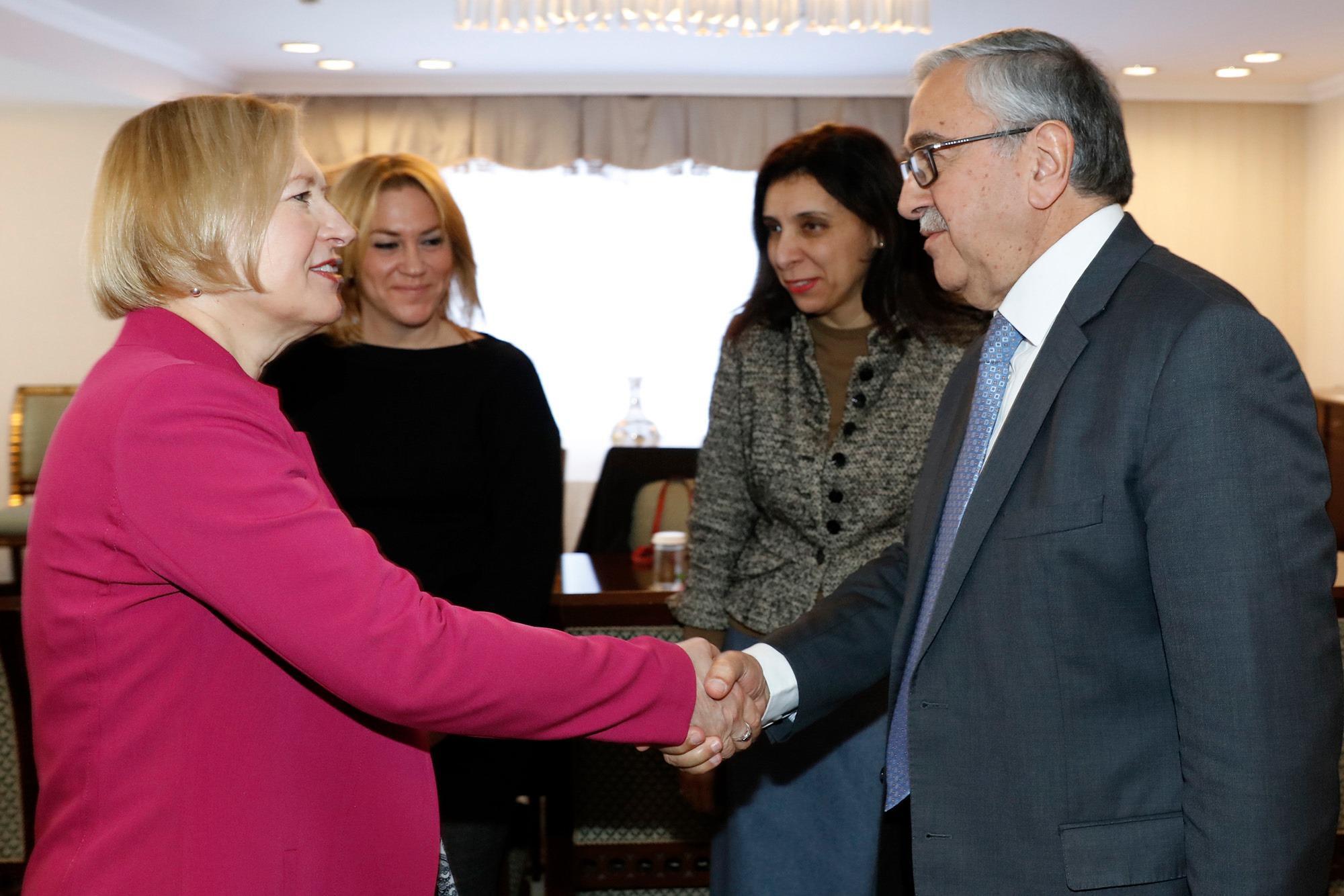
Turkish Cypriot leader Mustafa Akıncı received the UN special representative at the capital Lefkoşa on Jan. 10.
The meeting with Elizabeth Spehar took place at the presidential palace.
“It is important that the outcome of the trilateral meeting held in Berlin, particularly the highlighting of political equality is reflected in the report to be presented to the UN Security Council (UNSC),” Akıncı said after the meeting with Spehar.
Spehar had also met with Greek Cypriot leader Nicos Anastasiades on the same day.
The UN special representative met separately with the two leaders ahead of her visit to New York where she will brief the UN Security Council in the framework of the deliberations for the renewal of UNFICYP’s mandate.
According to the provisional programme of work of the UN Security Council for this month, consultations on UNFICYP will take place on Jan. 20, while the adoption of the UN resolution for the renewal of the peacekeeping force’s mandate has been scheduled for Jan. 30.
Akıncı said that the problems being experienced in the Eastern Mediterranean as a result of the discovery of hydrocarbons had increased the urgency to solve the Cyprus problem.
Turkish Cypriot leader says EastMed project costly, not conducive to Cyprus settlement

He said that a solution was no longer just a necessity for Cyprus but for the whole region as well.
Akıncı recalling the Turkish Cypriot side’s proposal on hydrocarbons made in July said it was important that the UNSC included in its report the importance of dialogue for the solution of the situation in the Eastern Mediterranean.
The 2,000-kilometer (1,200-mile) pipeline will be able to transfer between nine and 12 billion cubic meters a year from offshore gas reserves between Israel and Greek Cyprus to Greece, and then on to Italy and other southeastern European countries.
Turkey argues that the Greek Cypriot government should not have started gas explorations before reaching a settlement in reunification talks with the Turkish Cypriots, and that the mineral wealth belonged to both communities.
It is estimated that the transfer cost of the natural gas would be three times cheaper if the pipeline passes through Turkey.
In 1974, following a coup aiming at Cyprus’ annexation by Greece, Ankara had to intervene as a guarantor power. In 1983, Turkish Cyprus was founded.
The decades since then have seen several attempts to resolve the dispute, all ending in failure. The latest one, held with the participation of the guarantor countries Turkey, Greece, and the U.K., ended in 2017 in Switzerland.